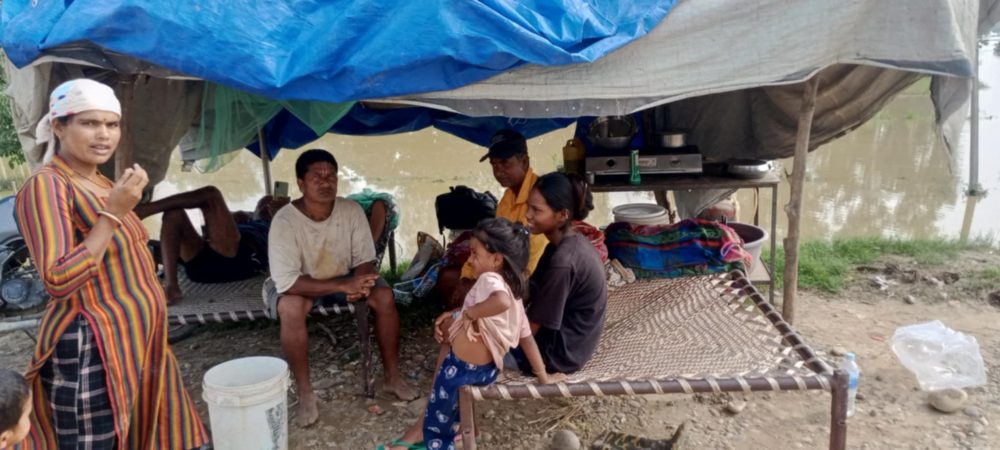

KANCHANPUR: Residents of the Banhara River coastal area in Latthagauri, Shuklaphanta Municipality-12, Kanchanpur are forced to live in tents in the forest area with the onset of the rainy season due to the fear of annual floods.
Tek Bahadur Salami Thapa Magar has been living with his family in a tent in a nearby community forest as soon as the monsoon season starts for the past seven years. Since the house is flooded, he moves to a safer place with food, clothing, children and livestock in time.
He came to Kanchanpur after his initial home in Jorayal, Doti, was swept away by a landslide. “We were completely homeless after the landslide took away our house,” he recalled. “We lived wherever we could find work, and that’s how we came here and started living.”
He has not stopped being chased by floods since he bought land on the riverbank. “We bought a little land, but the river also bothers us every year here,” he said, “so we have to move to the forest area as soon as the rains start.”
He and his wife depend on daily wages to support their family. He says that they barely manage their household expenses from their daily wages.
Not only Tek Bahadur, but six other families from the same settlement are in a similar situation. All of them move to the forest area before the onset of the rainy season and start living in temporary tents.
Sita Devi Bohara, who was displaced from Alital in Dadeldhura, has also been living on the banks of the Banhara River. Her family was forced to live here after their houses and property on the hill were swept away by a landslide.
“Even after I started living here, the floods have been a source of worry,” he said. “Three years ago, the floods swept away everything from food to goats and cows.”
Even now, they start to get scared as soon as they see dark clouds in the sky. “They have to leave their homes and head for the forest because they are worried about the river flooding,” he said.
Local Rajuram Luhar is also preparing to leave his home and head for the forest. “If it rains in the Chure area, the river will flood all the way to his house,” he said, “We cannot take the risk of staying at home.”
When there is no flood, they return home and do their daily work. They take care of plants and make houses, but they go to the forest to stay at night. Last year, the ward office had distributed tarpaulins. After the tarpaulins were torn, this year the ward office has constructed temporary housing for seven families with iron pipes and strong plastic roofs, informed Ward Chairman Nawal Singh Rana.
“The family was forced to live in the forest in an unsafe manner,” he said. “Now, arrangements have been made to allow them to live in a somewhat safe and orderly manner, and they can live with peace of mind after the rains.”